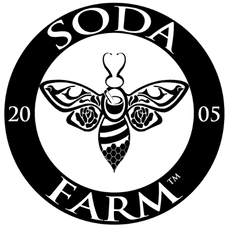Bees First Cooperative
BEESfirst Mission
At Mockingbird Meadows we strive to use sustainable methods and share our experiences with other beekeepers to create a network of healthy bees and responsibly-made honey products. Bees First is a cooperative effort between Mockingbird Meadows bee sanctuary and other interested beekeepers. If you have an interest in our efforts, please contact us at 614-354-5162 or dcombs@mockingbirdmeadows.com. Ultimately to save the bee we must put her first above profit or personal desire for the fruits of her labor. We must also recognize that beekeepers have been called to a partnership with the bee for centuries, and that the bee has been providing a needed human health product for much longer. The mission of Bees First is to spread sustainable beekeeping practices within the beekeeping industry by providing training, support for the health of the bee herself and by making it economically viable for beekeepers to switch from conventional methods.
Our Goals
*Train beekeepers to keep bees in a sustainable manner that puts the bee first.
*Provide standards for a sustainable label. Members will carry the Bees First logo on their products and can sell their excess honey to the foundation at a better than market price to ensure that sustainable methods can be profitable.
*License gardeners, recreation facilities, homeowners, public gardens and more across the country to operate Bees First Sanctuaries to support the health of the foraging bee.
*Build processing facilities that are available to member beekeepers. These processing facilities will handle strictly chemical-free honey through heatless lines.
*Build bee-yard facilities raising sustainably bred "local" bees to be sold in the same region where they are raised. Only swarming will produce these available bees, no unnatural methods or queen breeding will be employed.
What we Believe
Currently to be certified as Organic or Biodynamic you must not only follow set protocols on your land and within your hive, you must also be able to control the land where your bee forages. Bees are wild animals and can reliably forage up to 2 miles in any direction from their hive. In most instances beekeepers cannot attain these standards unless they live on an island or in a national park. This means that for most of the beekeeping industry there is neither a standard for stores to be able to judge more sustainable practices, nor any incentive to take on the financial impact or extra work required to take on practices that will preserve our bees.We believe that it is possible to continue to work in partnership with the bees. Beekeepers have been called to this partnership for centuries. We believe that saving the bees need not be exclusive from also making a living raising honey. Our practices are very different and focused on the Bees first before any other consideration. We are located in an area that is dominated by conventional agriculture. Yet we are holding at a 100% survival rate while the rest of the country is losing bees at a rate of at least 30% per year. This co-op and its spread within an industry that is working closely with the threatened bee herself can have a profound effect on halting the devastation caused by the Colony Collapse Disorder.It is not necessary to abandon the health benefits of the hive to save the bee. The partnership is merely broken. The bee is willing to work with us in a symbiotic relationship, but we must re-focus our efforts on ensuring that she is benefiting again from this age-old bargain. For too long we humans have benefited while the bee has suffered. We need a new model in the beekeeping industry if the bee is going to survive.
